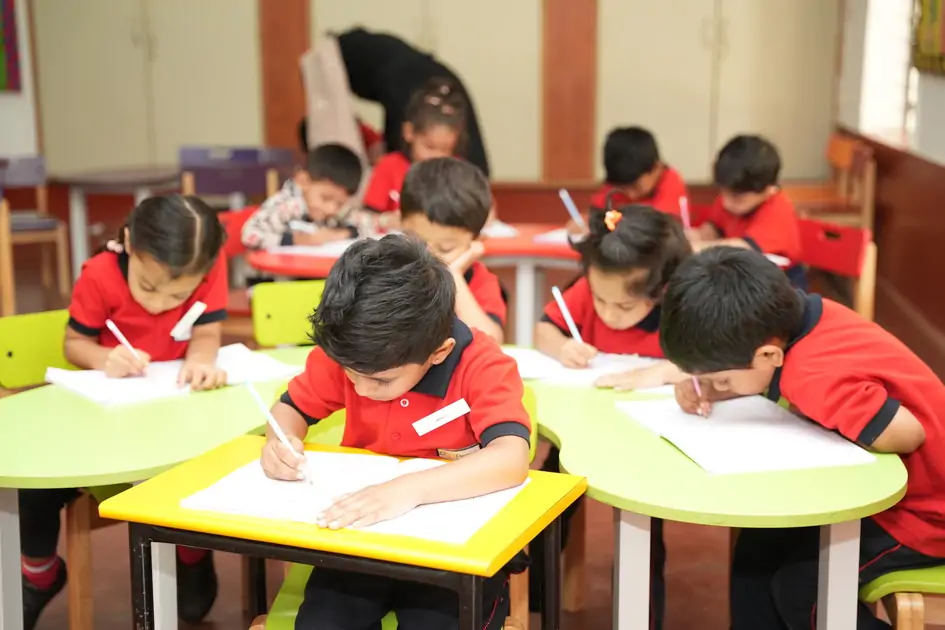Mental Health and Wellbeing in Children: Importance and Warning Signs
Mental health and well-being are crucial aspects of a student’s overall development and success in school. Stress and pressures of the academic life fall mostly into the “eustress” category, i.e., good stress. When they slip into “distress”, i.e., bad stress, students’ mental health can be negatively impacted. At Deccan International School, every student’s holistic progress is of utmost importance to us. Which is why our programmes are designed to incorporate overall development, including emotional, mental, creative, and physical development. Our extracurricular activities include cultural, sports, and interpersonal skill development programmes, and the academic year is designed around a good mix of academic pursuits as well as furtherance of non-academic skill sets.
As a friendly guide to parents, DIS has put together some key points to keep in mind and signs that could tell you if your child/ward needs intervention for their mental wellbeing. Here are some key points to consider:
Importance of Mental Health for School kids
- Academic Performance: Mental health issues can impact concentration, memory, and the ability to manage stress, which can affect academic performance. Conversely, a positive mental state can enhance learning and academic achievement.
- Social Relationships: Mental well-being influences how children interact with peers and teachers. Positive mental health supports healthy relationships, while challenges can lead to difficulties in social interactions and increased risk of bullying.
- Emotional Regulation: School can be a stressful environment, and children who are mentally healthy are generally better at managing their emotions and coping with challenges.
- Behaviour and Discipline: Mental health problems can sometimes manifest as behavioural issues. Understanding the root causes of these behaviours can help in addressing them more effectively.
Key Factors Affecting Mental Health in Schoolkids
- Academic Pressure: High expectations and heavy workloads can lead to stress and anxiety. Supportive environments and realistic expectations can help mitigate these effects.
- Social Dynamics: Friendships, peer pressure, and bullying are significant factors. Creating a supportive and inclusive school culture can help alleviate these stresses.
- Family Environment: A stable and supportive home life is critical. Issues at home, such as conflict or instability, can affect a child’s mental well-being.
- Individual Factors: Each child has their own unique challenges and strengths. Personal history, temperament, and coping skills play a role in how they handle stress and emotional difficulties.
Strategies for Supporting Mental Health in Schools
- Promote a Positive School Climate: Encourage a culture of kindness, inclusivity, and respect. Programs that focus on emotional intelligence and social skills can be beneficial.
- Integrate Mental Health Education: Educate all parties involved about mental health to reduce stigma and promote understanding. This can include programs on stress management, emotional regulation, and mental health awareness.
- Encourage Healthy Habits: Promote physical activity, healthy eating, and adequate sleep, as these are all linked to better mental health.
- Foster Strong Relationships: Encourage students to build strong, supportive relationships with their parents and teachers. Positive relationships can act as a buffer against stress and mental health issues.
- Implement Early Intervention: Identify and address mental health issues early. This can go a long way in mitigating ill-effects of prolonged mental health issues.
- Provide Resources and Support: Ensure that students have access to mental health resources, including support groups, therapy options, and educational materials.
Signs That a Student May Need Help
- Changes in behaviour or mood
- Difficulty concentrating or sudden drops in academic performance
- Withdrawal from social activities or friends
- Physical symptoms like headaches or stomach aches with no clear cause
- Extreme or prolonged sadness or irritability
By focussing on these areas, parents and teachers can create environments that support the mental health and well-being of their students, leading to healthier, more successful individuals. PTA meetings serve as a strong bridge for teachers to have transparent conversations with parents about their students’ performance and any concerns the teachers may have about the student’s mental wellbeing.
In Conclusion
Mental well-being in school children is essential for their overall development and success. It encompasses emotional, psychological, and social aspects that influence how children cope with stress, interact with others, and engage in learning. By addressing these areas and implementing supportive strategies, parents and schools can together help foster a positive mental well-being environment for students, leading to improved academic performance, better relationships, and overall healthier development. At DIS, we are committed to ensuring your child experiences a positive academic environment that fosters not just academic success, but emotional, mental, and physical wellbeing as well.
Interested to know more about Deccan International School? Register Here




